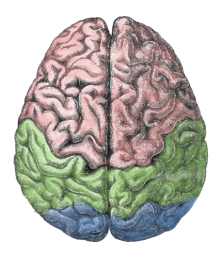The teenage years are a time of confusion, raving emotions, and dumb decisions. It remains a question for many, why these occurrences are dominant during adolescence. In an effort to help parents and teenagers, understand what goes on in an adolescent mind, on March 26 San Dieguito Academy put on a Family Forum: Understanding the Teenage Brain.
James Hrzina, the school psychology teacher, explained what happens to the brain during puberty. He said that by age six, the brain is 95% fully grown. So, during puberty it is not brain growth that throws teenagers off, but a process that takes place inside the brain. It goes through a procedure called pruning, “much like the pruning of a rose bush,” Hrzina said. Neural pathways connecting to the frontal lobe get strengthened, while unused neural pathways are “pruned.” The result is a more efficient connection to the frontal lobe, which hosts activity for advanced functions such as planning, decision making, and emotions. Because the pruning process is not finished until adulthood, the teenager does not have access to much of the brain’s ability to perform highly advanced functions.
Charles Smith, the Chief Research Officer at Knowledge Factor, explained the best ways to learn, and how to keep it in memory. He said, “It’s hard to forget some things because some things are more important than others.” He explained that you have to repeatedly study. Your brain will remember the things you repeat, he says. And he adds in the repetition must be spaced out. One must wait two days or a week to get the full effect of repetitive studying.
“Kids should test themselves,” said Smith. He went on to explain how memory works. When a person learns or hears something, it will always be stored inside their brain. However, remembering the information is based on the person’s ability to retrieve it from memory. If you test yourself, your brain will create a retrieval pathway for the information, so when you need to access what you have learned your brain knows how to retrieve the information.
Smith’s last piece of advice is to keep in mind that knowledge is based on incremental learning. He said people should keep a mindset: “’If I put in effort, and work at things, bit by bit I can get better.’” He explained that people often believe you are either born with intelligence or not. And those people think when they have to put effort into learning they are just stupid. But he says that is not the case, and it’s the parents’ job to help their child understand that learning takes an effort and work.
Dr. Mary ET Boyle, from the University of California San Diego Department of Cognitive Science discussed computer and gaming addictions. She said that 61% of teenagers say admit to feeling addicted to the internet; however, 39% of those teenagers could quit using the internet if they wanted to. She said “A habit is a non-conscious, non-aware behavior.” She also added in, “they are hard to break because they take a long time to encode and build up [in the memory.]” A last surprise she shocked the audience with was her admittance, “Women or girls addicted to Facebook are more prone to cutting themselves and eating disorders.” So it’s an important thing to find other healthy outlets for having fun or passing the time.
Also from the University of California San Diego , Dr. Carmen Pulido who works in the Department of Psychiatry explained the effects of substance abuse. She revealed “As [teenagers] expose themselves to substances, they increase their risk for addictions.” Pulido also said that adolescent heavy drinkers show signs of a 10% worsened memory. The effects of substance use may seem short and harmless, but they do affect the brain and can prevent one from reaching their full potential.
The forum was an informative event; useful to parents and teens to understand what is going on in these precious years. The four knowledgeable speakers each brought a powerful message to the table to help inform parents and kids of what is going on and how to prepare.

